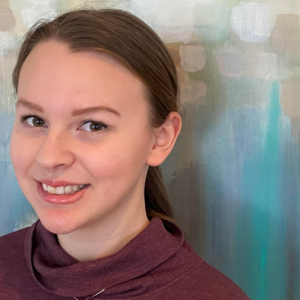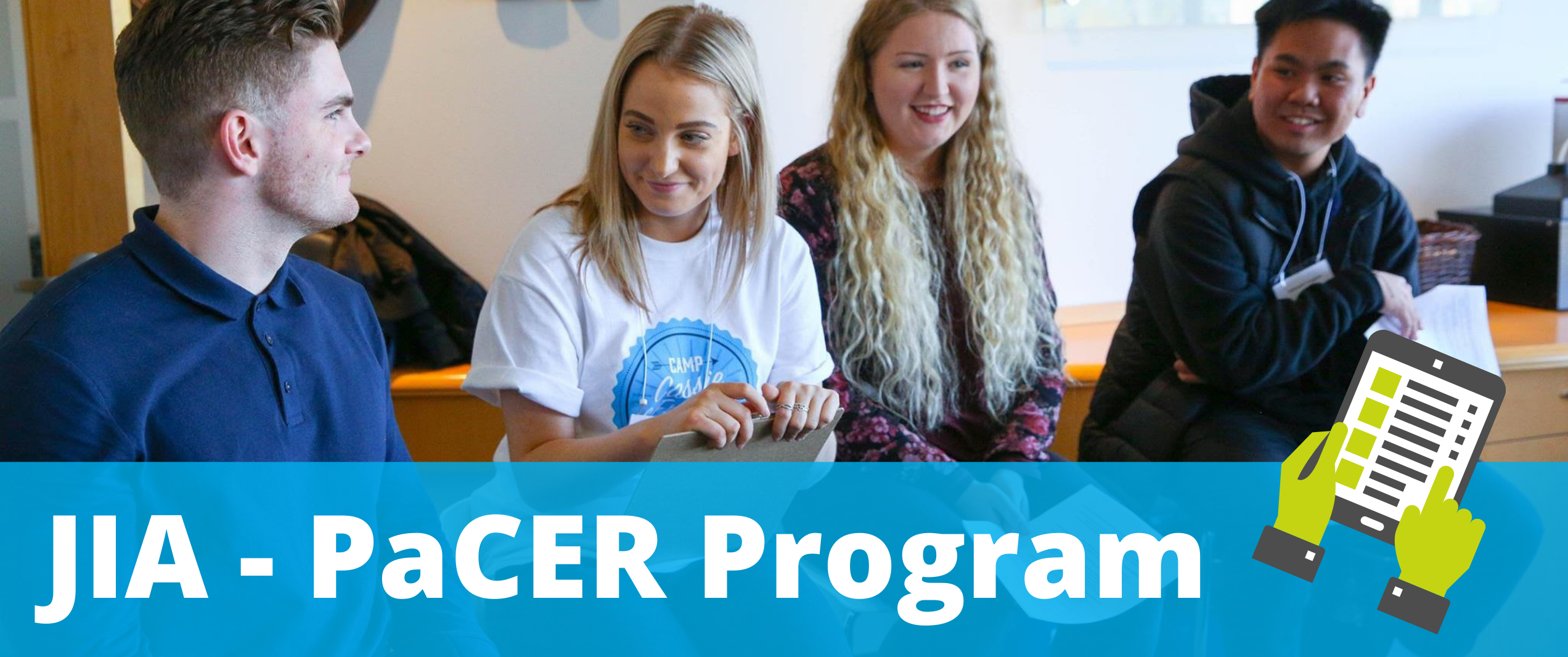Learn about the JIA-PaCER 2021 Program
Meet the participants:
All of the program participants had lived experience which informed JIA-related health research and transition planning from a first-hand perspective.
 Kayla, 22, BC
Kayla, 22, BC
Kayla started having arthritis symptoms when she was 12 years old but wasn’t formally diagnosed until she began university. As a young adult with JIA, she struggled to explain her symptoms and was easily overwhelmed by all of the different hoops she felt she had to jump through in the adult care system. Kayla is excited to be a part of the JIA PaCER program because in her opinion, research that involves patients’ lived experiences is highly valuable to making improvements for youth in the future. She looks forward to learning more about how transition from pediatric to adult care affects adolescents with JIA, especially since her experience with it was quite different due to her late diagnosis.
In December 2020, Kayla shared her story with chronic illness during our Mental Health Webinar, watch it here!
 Morgan, 18, ON
Morgan, 18, ON
Morgan was diagnosed with JIA when she was eight years old after experiencing unexplained swelling and pain in her knees and ankles that made it challenging to walk in the morning and impossible to fully bend her knees. She knows how uneasy she felt about the transition to adult care, so from one patient to another is looking forward to helping teens feel more comfortable during this time. Morgan is excited to be a part of the JIA PaCER program as she would like to be able to provide evidence-based research so that teens in the future will have useful resources and more opportunities to make their transition to adult care smoother.
Morgan shared her experience transitioning from pediatric to adult care at our Juvenile Arthritis Transition Webinar held on November 5th, 2020.
 Lauren, 24, ON
Lauren, 24, ON
Lauren was diagnosed with JIA when she was 3 years old. When it came time for her to transition to adult care, she was also in the midst of moving away from home to start university. All at once, she was away from home & away from a care team who knew her disease better than she ever had. Over the course of her university experience, she felt like she had to re-learn each ‘arthritis lesson’ the hard way. She wasn’t expecting to find it difficult to transition, and felt frustrated, depressed, and confused when she had pain, inflammation, and large flares in her disease activity. Lauren feels strongly that access to the proper support can change the course of one’s disease, and by extension, allow youth with arthritis to live fuller, healthier, and happier lives.
 Manahil, 20, AB
Manahil, 20, AB
When Manahil was 15 years old she was diagnosed with polyarticular JIA. She explains that as part of the JIA PaCER Program, she would like to understand more about how we can provide patients with a smooth transition to adult care with the least amount of stress on youth. From her experience, she says switching from pediatrics to adult care can feel like you are leaving a family of sorts and in turn, she experienced a lot of anxiety when switching from pediatrics to adult care. By doing research that focuses on patient care and improving transitions for youth, she hopes to be able to apply the knowledge she has gained to clinical practice, especially since she hopes to go into pediatric health care. Learn more about Manahil’s rheumatic disease journey here.
 Natasha, 17, ON
Natasha, 17, ON
Natasha was diagnosed with Polyarticular Juvenile Idiopathic Arthritis at the age of 13. At that time she had swollen fingers, wrists, ankles, feet and pain all throughout her body. At 13, she felt that she was alone with no hope and only fear that her joints could be permanently damaged. Natasha wants individuals like her to know that they have hope and there are support groups, researchers and doctors who are all continuously working to make the path easier for them. As a patient researcher, she wants to be involved in building that security and base for those diagnosed with JIA.
Natasha is also a Teen Arthritis Group (TAG) leader for the Toronto area.
 Alejandra, 18, SK
Alejandra, 18, SK
Alejandra’s journey with Polyarticular JIA began when she was a few months short of her second birthday. As someone who is just about to make the leap from pediatric to adult care, she knows first hand how daunting this experience feels. She is excited to participate in patient research as it will help gather the knowledge and resources to make this transition as smooth as possible for other youth with JIA.

what is a JIA-PaCER?
What do PaCER researchers do?
By completing the JIA-PaCER Training Program, participants were connected to a large network of professionals who work on JIA-related research projects related to patient-engaged research.
Patient researchers become involved in research in the following ways:
- Join research teams to engage patients in health research
- Work as a patient engagement researcher in healthcare, health charities, clinics, and patient education
- Consult with healthcare teams, decision-making bodies and funding panels
- Share results of patient-engaged research through presentations and publications
About the JIA-PaCER Program
Offered through the University of Calgary Continuing Education, the Certificate in Patient and Community Engagement Research is a three-course program that teaches 160 hours of patient-engagement research content over twelve months. Access to a computer and a reliable Internet connection is required*.
Have questions? Please reach out to jennifer@cassieandfriends.ca.






